In your first organic CSA share for 2015 we are offering a freshly harvested selection of spring favorites.
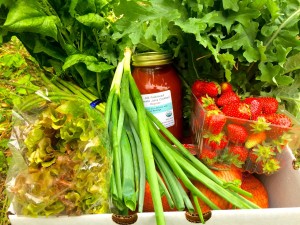
Spring share, strawberries, onions, lettuce, sweet potatoes, juice, kale, spinach
Spinach Soufflé
1 to 1 1/4 cup spinach, chopped
1/2 cup onion, chopped
2 eggs
1/2 cup shredded cheese
1/2 cup sour cream
1 tablespoon flour
2 TBL butter, softened
1/2 teaspoon salt
1/4 tsp. black pepper
Mix spinach and onion together in bowl and set aside.
In separate bowl, mix eggs, cheese, sour cream, flour, butter, salt , pepper.
Add spinach and onion and mix well. Place in a 11/2 quart greased casserole dish. Bake at 350 for about 25 minutes, or until lightly browned on top.
Sesame Kale
2 cloves garlic, minced
1bunch kale
2 teaspoons sesame seed oil
2 tablespoons water
1 teaspoon soy sauce
2 teaspoons toasted sesame seeds
Salt and pepper, if desired
Mince the garlic cloves. Wash kale. Remove and discard the stems from the kale and tear it into bite-size pieces. Save the stems for another use, such as vegetable stock.
Heat the sesame seed oil in the skillet over medium-low heat. Add the minced garlic to the hot oil and sauté for about 20 seconds. Add the kale and water to the garlic and oil, and cover the skillet.
After 1 minute, stir the kale, then re-cover. After 1-2 more minutes, when the kale is wilted, stir in the soy sauce and sesame seeds. If desired, add salt and/or pepper to taste.
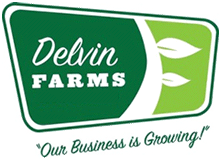
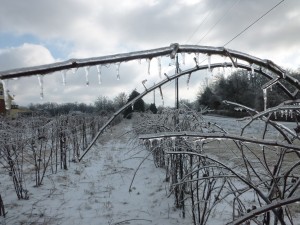
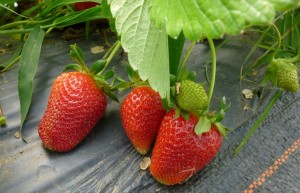
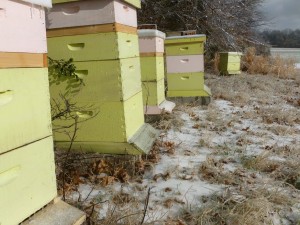
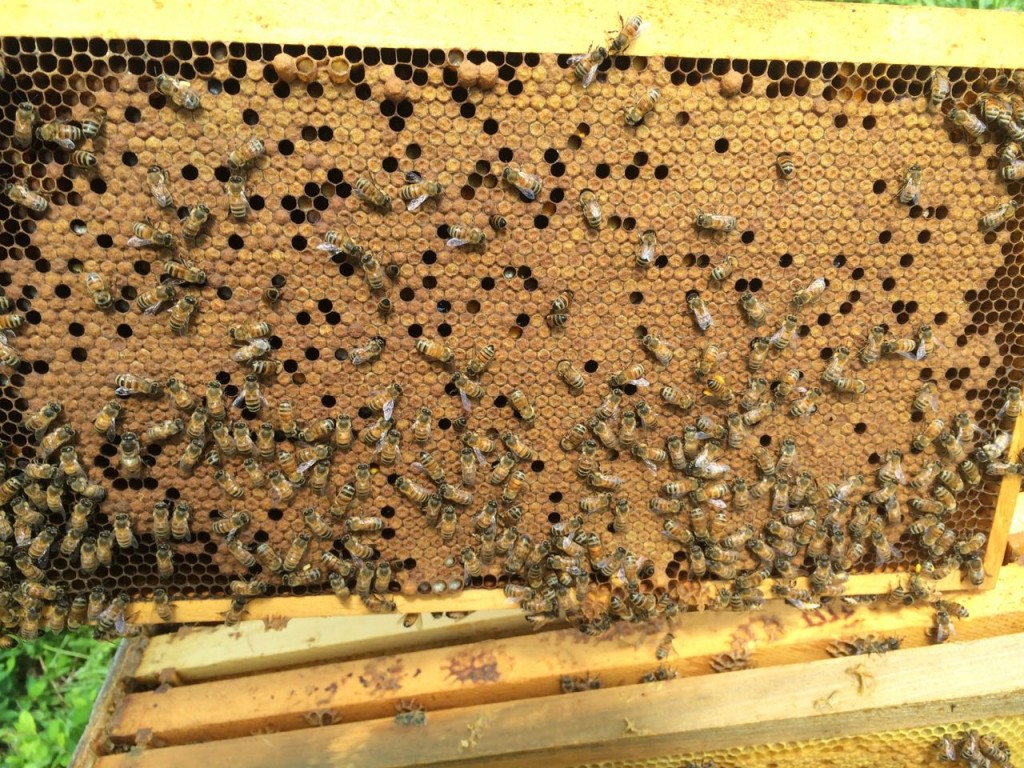
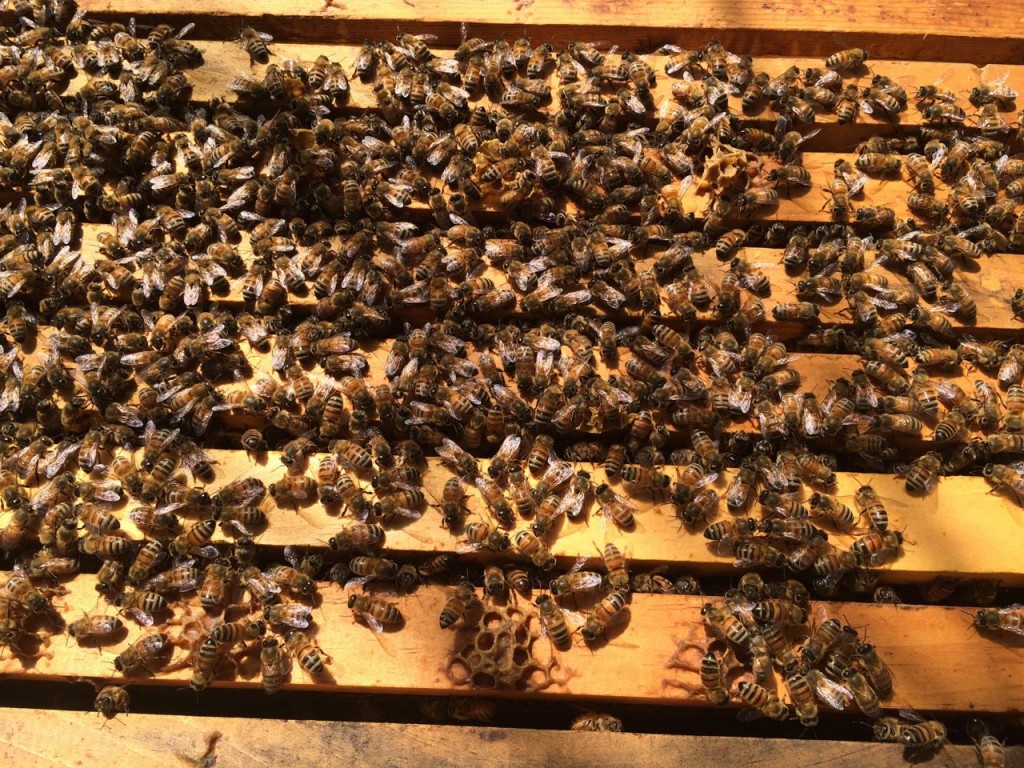
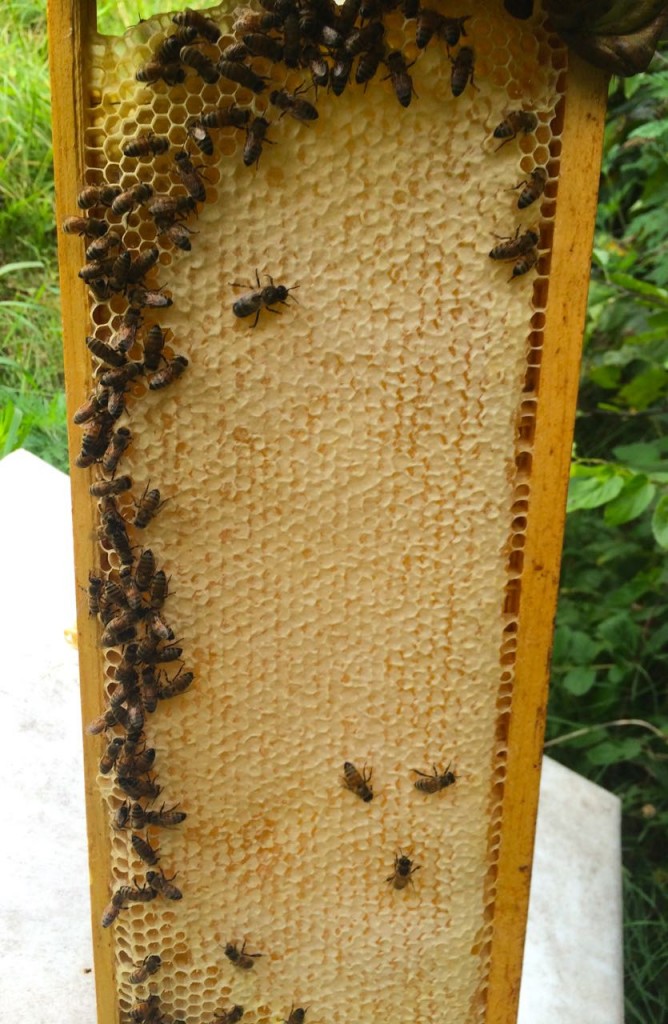
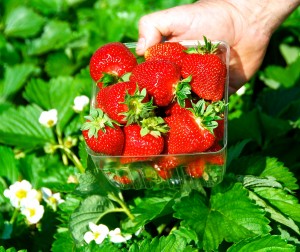
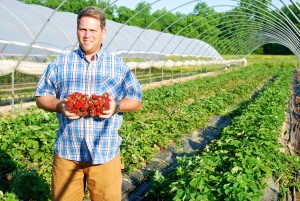
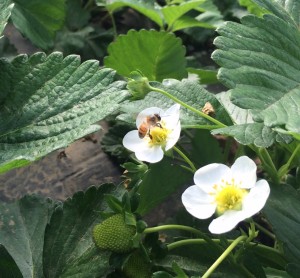 organic matter, micro and macro nutrients alike. We water the berries heavily during the fruiting season using the water conserving drip irrigation system. Most importantly, the berries are allowed to fully ripen on the plant before we harvest them. The mid May heat, sunshine, organic soil and water are the perfect combination to create a sweet, juicy strawberry’ie taste.
organic matter, micro and macro nutrients alike. We water the berries heavily during the fruiting season using the water conserving drip irrigation system. Most importantly, the berries are allowed to fully ripen on the plant before we harvest them. The mid May heat, sunshine, organic soil and water are the perfect combination to create a sweet, juicy strawberry’ie taste.